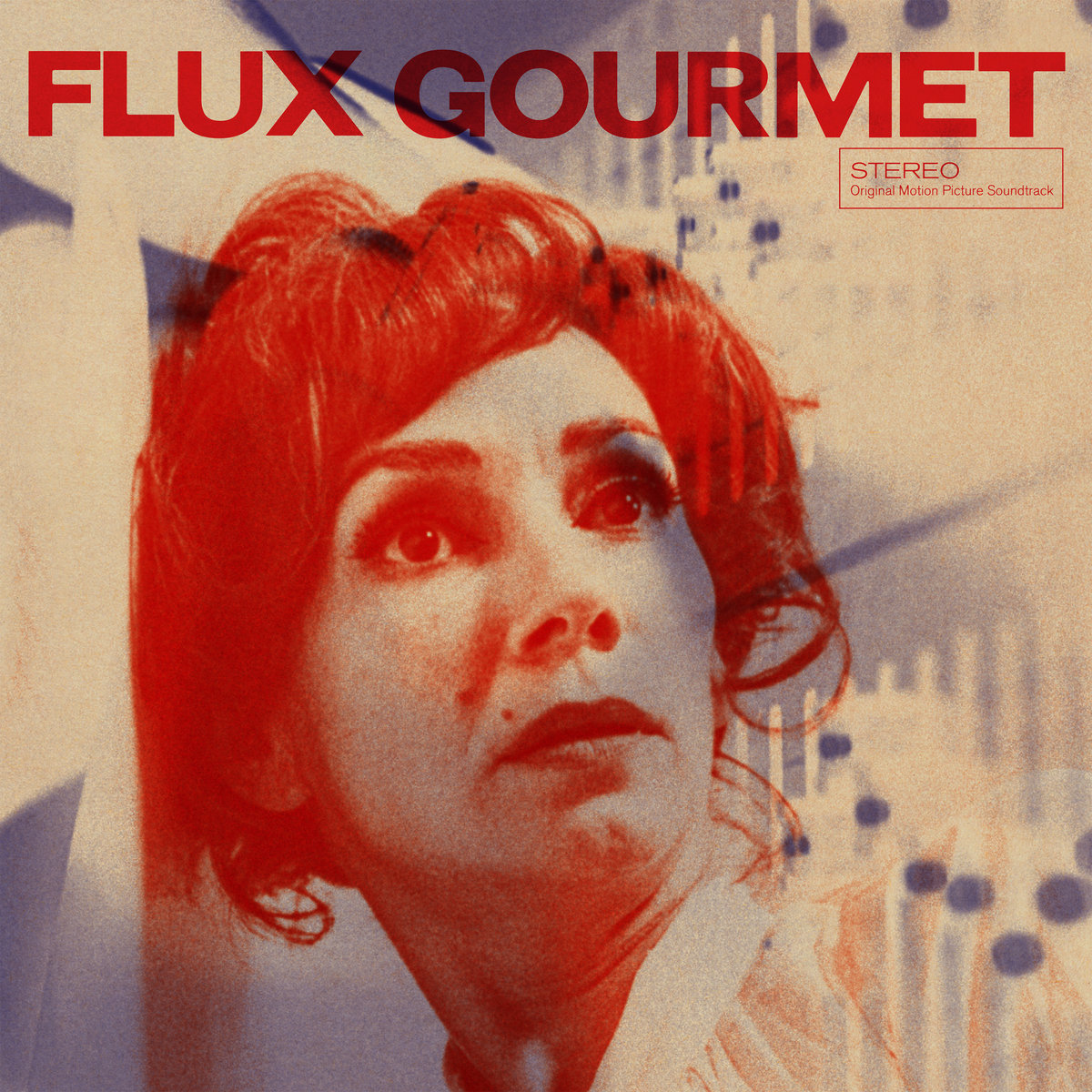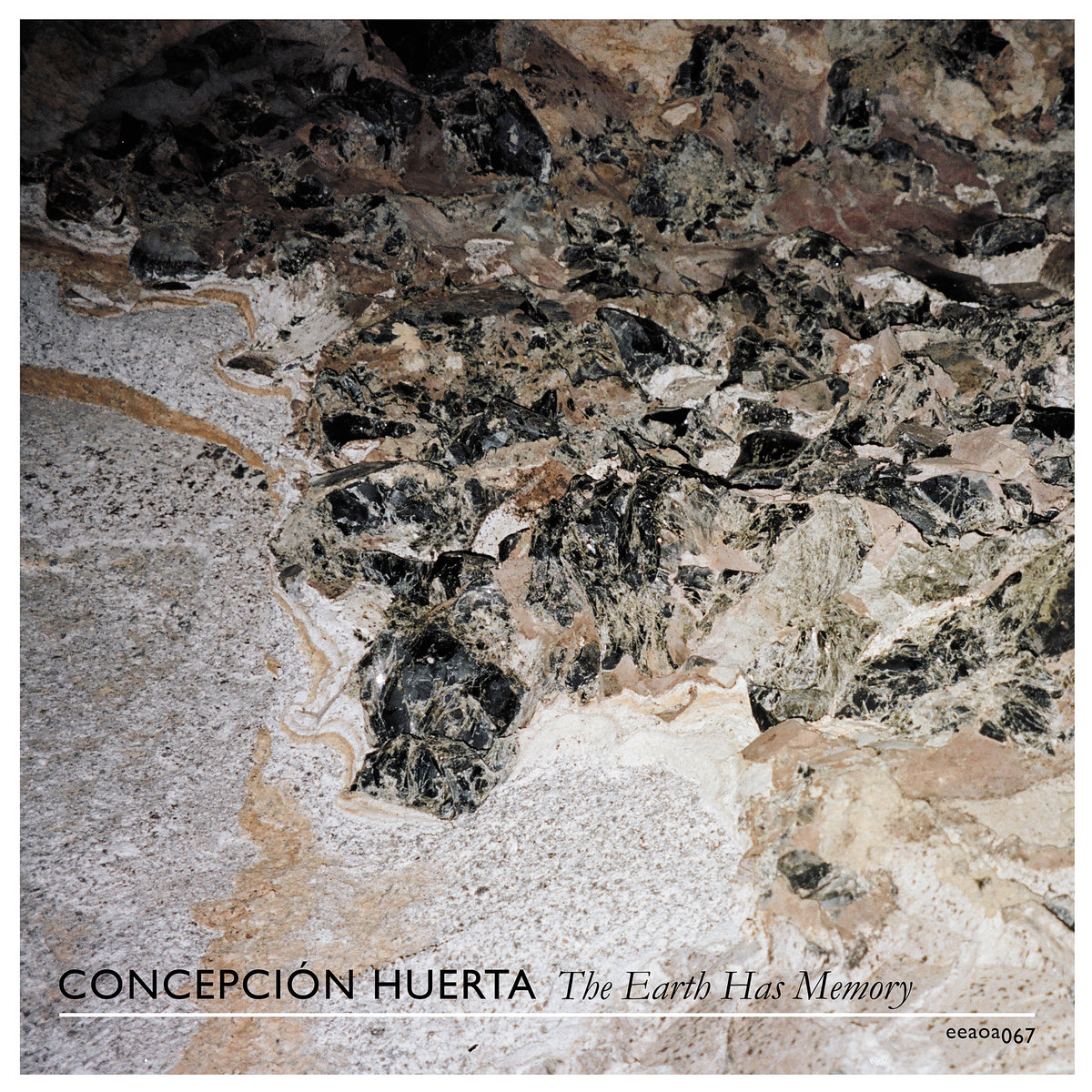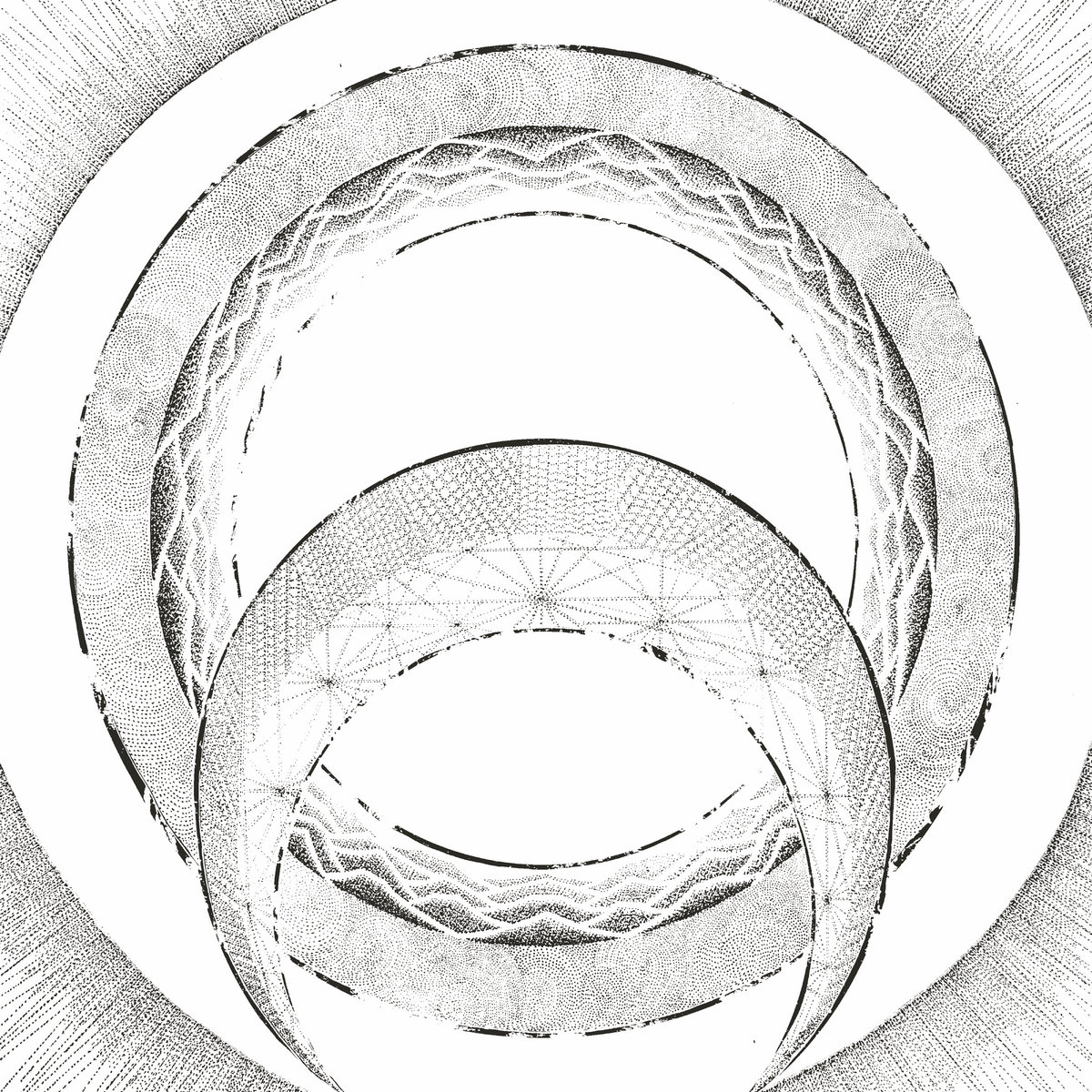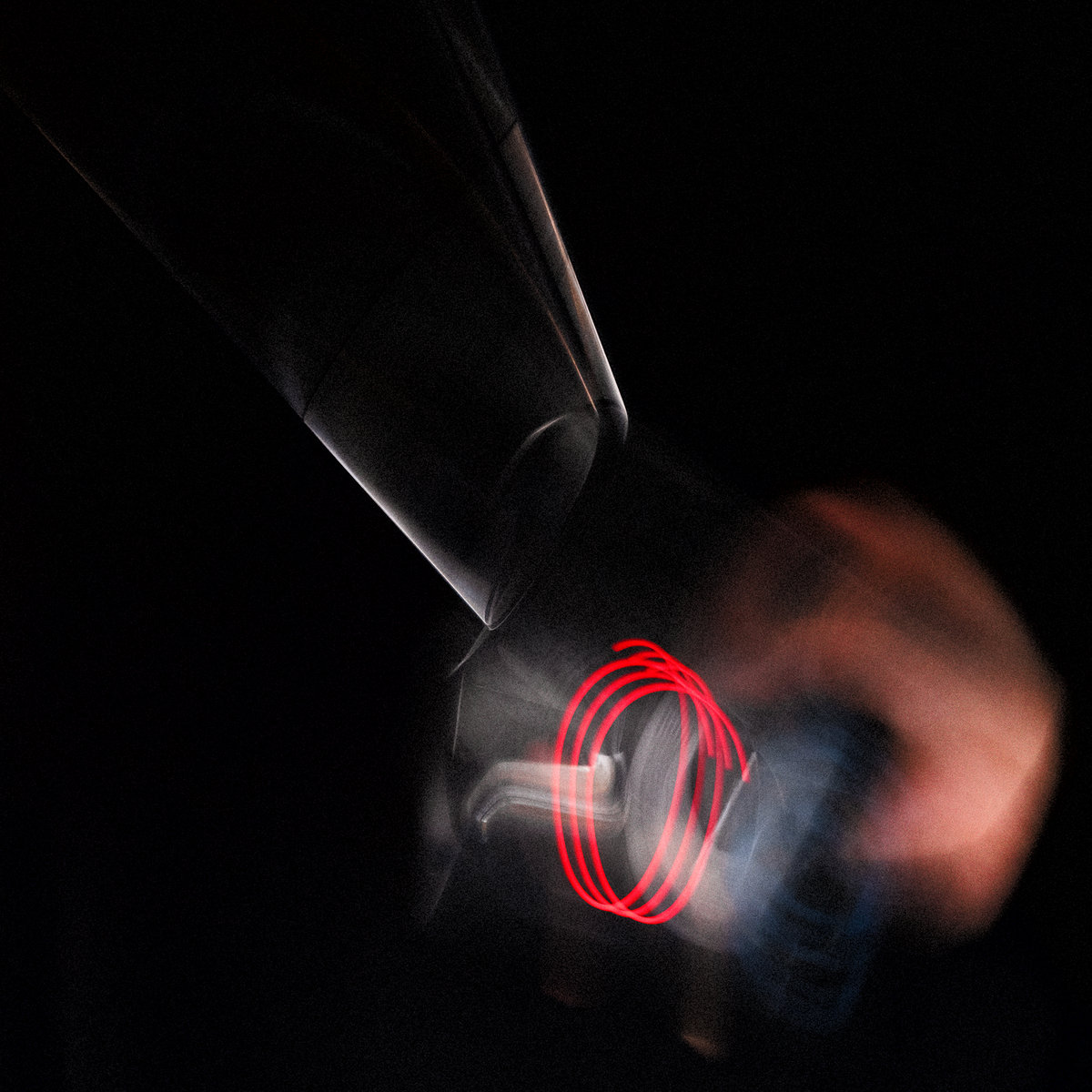- Anthony D'Amico
- Albums and Singles
 I acknowledge it is only February right now, but I believe I can confidently state that this soundtrack will be the weirdest and most mystifying new album that I will encounter this year. The film itself was released back in 2022 and follows the trials and tribulations of an imaginary performance art group during a surreal and contentious month-long artist residency. It is an absolutely brilliant and wickedly funny film (possibly director Peter Strickland's finest work) and joins similarly deranged fare like Holy Mountain in the pantheon of cinema so audaciously batshit crazy that it is hard to fathom how it was ever financed, cast, or released. As befits such a bananas endeavor, the soundtrack features a murderers' row of compelling artists from the experimental/psych fringes, drawing participants from Broadcast, Nurse With Wound, Stereolab, Neutral Milk Hotel, Swans, and elsewhere. Obviously, that seems like a solid recipe for a unique album, but it is a unique album with a twist, as the heart of it all is Strickland's own Sonic Catering Band, a shifting collective devoted to transforming the preparation of vegetarian meals into ritualistic noise performances.
I acknowledge it is only February right now, but I believe I can confidently state that this soundtrack will be the weirdest and most mystifying new album that I will encounter this year. The film itself was released back in 2022 and follows the trials and tribulations of an imaginary performance art group during a surreal and contentious month-long artist residency. It is an absolutely brilliant and wickedly funny film (possibly director Peter Strickland's finest work) and joins similarly deranged fare like Holy Mountain in the pantheon of cinema so audaciously batshit crazy that it is hard to fathom how it was ever financed, cast, or released. As befits such a bananas endeavor, the soundtrack features a murderers' row of compelling artists from the experimental/psych fringes, drawing participants from Broadcast, Nurse With Wound, Stereolab, Neutral Milk Hotel, Swans, and elsewhere. Obviously, that seems like a solid recipe for a unique album, but it is a unique album with a twist, as the heart of it all is Strickland's own Sonic Catering Band, a shifting collective devoted to transforming the preparation of vegetarian meals into ritualistic noise performances.
- Anthony D'Amico
- Albums and Singles
 This is the second album from the instrumental duo of Ellis Swan and James Schimpl and the first Dead Bandit album to follow Swan's killer 2022 solo album 3am. Happily, Memory Thirteen returns to the hypnagogic "witching hour" vibes of 3am, but it also marks a very compelling creative leap forward into fresh stylistic terrain. To my ears, that blearily dreamlike terrain is best described as "what if Boduf Songs scored a gig as the house band at a strip club in the Donnie Darko universe?" Needless to say, that is a very tricky and hyper-specific niche to fill, yet Dead Bandit consistently find new ways to combine hushed and haunted late-night melancholy with neon-soaked sensuousness, deadpan cool, and dreampop shimmer.
This is the second album from the instrumental duo of Ellis Swan and James Schimpl and the first Dead Bandit album to follow Swan's killer 2022 solo album 3am. Happily, Memory Thirteen returns to the hypnagogic "witching hour" vibes of 3am, but it also marks a very compelling creative leap forward into fresh stylistic terrain. To my ears, that blearily dreamlike terrain is best described as "what if Boduf Songs scored a gig as the house band at a strip club in the Donnie Darko universe?" Needless to say, that is a very tricky and hyper-specific niche to fill, yet Dead Bandit consistently find new ways to combine hushed and haunted late-night melancholy with neon-soaked sensuousness, deadpan cool, and dreampop shimmer.
- Creaig Dunton
- Albums and Singles
 On her first solo vinyl release, Mexico's Concepción Huerta largely employs the use of Buchla and Nord synths, recorded in residence at EMS Stockholm. Further tape manipulation is then used to create a record that sits somewhere between atmospheric space and intense noise. Textures and distortion sprawl outward, but occasionally relent to allow some gentle elements to slip in, resulting in a record that sounds rooted not just in the Earth, but also expands far into outer space.
On her first solo vinyl release, Mexico's Concepción Huerta largely employs the use of Buchla and Nord synths, recorded in residence at EMS Stockholm. Further tape manipulation is then used to create a record that sits somewhere between atmospheric space and intense noise. Textures and distortion sprawl outward, but occasionally relent to allow some gentle elements to slip in, resulting in a record that sounds rooted not just in the Earth, but also expands far into outer space.
- Creaig Dunton
- Albums and Singles
 Barely six months after his last double album Embrace This Twilight, Matt Weston has just released another record of idiosyncratic compositions. Consisting of two side-long pieces, Weston balances two notable different approaches to composition, with the first side being the more spacious and sustained, and the other dense and sprawling in approach, linking disparate sounds in an incredible manner.
Barely six months after his last double album Embrace This Twilight, Matt Weston has just released another record of idiosyncratic compositions. Consisting of two side-long pieces, Weston balances two notable different approaches to composition, with the first side being the more spacious and sustained, and the other dense and sprawling in approach, linking disparate sounds in an incredible manner.
- Anthony D'Amico
- Albums and Singles
 This is New York-based composer/puppeteer Tristan Allen's full-length debut and it is quite an ambitious one, as Tin Iso and the Dawn is the first chapter of a planned "shadow puppet symphony" trilogy loosely based on Wagner's "Tristan and Isolde" that has been in the works since 2015. From where I am standing, there are innumerable ways in which such an album could go wrong and they range from "forgettable score to cool puppet show" to "cloyingly precious" to "outright bombastic." Instead, however, Tin Iso and the Dawn sounds like a stone-cold masterpiece dropped by a creative supernova. Listening back to Allen's previous discography (a pair of classical piano EPs), it almost feels like this vision materialized out of nowhere, but the seeds of this puppet-centric magnum opus may have been planted more than a decade ago when Allen co-wrote a piece with Amanda Palmer in the early days of her "Dresden Dolls hiatus" solo career.
This is New York-based composer/puppeteer Tristan Allen's full-length debut and it is quite an ambitious one, as Tin Iso and the Dawn is the first chapter of a planned "shadow puppet symphony" trilogy loosely based on Wagner's "Tristan and Isolde" that has been in the works since 2015. From where I am standing, there are innumerable ways in which such an album could go wrong and they range from "forgettable score to cool puppet show" to "cloyingly precious" to "outright bombastic." Instead, however, Tin Iso and the Dawn sounds like a stone-cold masterpiece dropped by a creative supernova. Listening back to Allen's previous discography (a pair of classical piano EPs), it almost feels like this vision materialized out of nowhere, but the seeds of this puppet-centric magnum opus may have been planted more than a decade ago when Allen co-wrote a piece with Amanda Palmer in the early days of her "Dresden Dolls hiatus" solo career.
- Anthony D'Amico
- Albums and Singles
 Much to my surprise, my favorite tape music album of 2023 did not come from any of the usual suspects (Nonconnah, Lilien Rosarian, Ian William Craig, etc.) and instead came courtesy of this unusual collaboration between newly Parisian jazz pianist/composer Richard Sears and producer Ari Chersky. While I am unfamiliar with Sears' previous activities in NYC's avant-garde scene before his trans-Atlantic relocation, Appear to Fade is an entirely new animal altogether, as it is a series of collages built from decontextualized/recontextualized recordings of solo piano compositions and live improvisations. I can understand why this is being released as a Richard Sears album, given the fact that he played everything and has some serious jazz cred to boot, but the impact of Chesky's editing and healthy appreciation for pleasures of analog tape distortion elevates those recordings into something brilliant that feels far greater than the sum of its parts. While much of that success is due to the pair's unerring intuitions and Sears' undeniably beautiful playing, the real magic of Appear to Fade lies in how masterfully the duo were able to organically weave together looping melodies with fluid and spontaneous-sounding improvisations while evoking a mesmerizing mirage of elegantly shifting moods.
Much to my surprise, my favorite tape music album of 2023 did not come from any of the usual suspects (Nonconnah, Lilien Rosarian, Ian William Craig, etc.) and instead came courtesy of this unusual collaboration between newly Parisian jazz pianist/composer Richard Sears and producer Ari Chersky. While I am unfamiliar with Sears' previous activities in NYC's avant-garde scene before his trans-Atlantic relocation, Appear to Fade is an entirely new animal altogether, as it is a series of collages built from decontextualized/recontextualized recordings of solo piano compositions and live improvisations. I can understand why this is being released as a Richard Sears album, given the fact that he played everything and has some serious jazz cred to boot, but the impact of Chesky's editing and healthy appreciation for pleasures of analog tape distortion elevates those recordings into something brilliant that feels far greater than the sum of its parts. While much of that success is due to the pair's unerring intuitions and Sears' undeniably beautiful playing, the real magic of Appear to Fade lies in how masterfully the duo were able to organically weave together looping melodies with fluid and spontaneous-sounding improvisations while evoking a mesmerizing mirage of elegantly shifting moods.
- Anthony D'Amico
- Albums and Singles
 It has been a while since this duo of James Ginzburg and Paul Purgas last surfaced, but they are back with a new EP to celebrate Subtext's 50th release. Since releasing 2019's Blossoms, the pair have been quite busy with other projects, as Purgas's research played a crucial role in the release of The NID Tapes: Electronic Music from India 1969-1972 while Ginzburg has kept himself occupied with running a record label, releasing solo albums, and performing as part of "experimental supergroup" Osmium. Emptyset was never fully dormant, however, and Ginzburg and Purgas convened in Bristol this summer to shape their accumulated ideas into one of their most focused and singular releases in recent memory. It is also one of their most concise, as ash clocks in at an extremely lean 16-minutes. If this were any other project, that brevity would suggest a serious dearth of fresh ideas or compelling new material, but it is exactly the right length for a perfect distillation of Emptyset's viscerally spasmodic and pummeling percussion assaults.
It has been a while since this duo of James Ginzburg and Paul Purgas last surfaced, but they are back with a new EP to celebrate Subtext's 50th release. Since releasing 2019's Blossoms, the pair have been quite busy with other projects, as Purgas's research played a crucial role in the release of The NID Tapes: Electronic Music from India 1969-1972 while Ginzburg has kept himself occupied with running a record label, releasing solo albums, and performing as part of "experimental supergroup" Osmium. Emptyset was never fully dormant, however, and Ginzburg and Purgas convened in Bristol this summer to shape their accumulated ideas into one of their most focused and singular releases in recent memory. It is also one of their most concise, as ash clocks in at an extremely lean 16-minutes. If this were any other project, that brevity would suggest a serious dearth of fresh ideas or compelling new material, but it is exactly the right length for a perfect distillation of Emptyset's viscerally spasmodic and pummeling percussion assaults.
- Anthony D'Amico
- Albums and Singles
 I am almost always intrigued by the eclectic and unusual inspirations behind Marc Richter albums and this latest full-length for Thrill Jockey is no exception. The core concept at the heart of this one is the "hybridity within each and every one of us," which Richter set out to mirror through a mixture of self-created sounds and manipulated samples. Things got more interesting along the way, however, as Richter had the epiphany that his own methods are quite similar to artificial intelligence "hallucinations," which is a phenomenon in which an overloaded AI starts perceiving non-existent patterns or spewing incorrect or nonsensical conclusions.
I am almost always intrigued by the eclectic and unusual inspirations behind Marc Richter albums and this latest full-length for Thrill Jockey is no exception. The core concept at the heart of this one is the "hybridity within each and every one of us," which Richter set out to mirror through a mixture of self-created sounds and manipulated samples. Things got more interesting along the way, however, as Richter had the epiphany that his own methods are quite similar to artificial intelligence "hallucinations," which is a phenomenon in which an overloaded AI starts perceiving non-existent patterns or spewing incorrect or nonsensical conclusions.
- Anthony D'Amico
- Albums and Singles
 This is one of the more enigmatic and compellingly inscrutable albums that I have heard in quite some time, but I could probably say the same thing about a half dozen other Aki Onda albums at this point. This particular project began in 2006 when Onda acquired a slim handheld AM/FM radio/cassette recorder and began bringing it with him whenever he traveled: each night when he went to bed, he would turn on the radio and scan the dial in search of something interesting to soundtrack his descent into sleep.
This is one of the more enigmatic and compellingly inscrutable albums that I have heard in quite some time, but I could probably say the same thing about a half dozen other Aki Onda albums at this point. This particular project began in 2006 when Onda acquired a slim handheld AM/FM radio/cassette recorder and began bringing it with him whenever he traveled: each night when he went to bed, he would turn on the radio and scan the dial in search of something interesting to soundtrack his descent into sleep.
- Creaig Dunton
- Albums and Singles
 Having dabbled in other styles and methods of instrumentation in recent years, Afterlife finds Polish composer Robert Piotrowicz returning to modular synthesis, the mainstay of his career thus far. Rather than using that complex array of modules and patch cables to generate bizarre, idiosyncratic sound effects, as many do, he instead intentionally utilizes it to emulate traditional, physical instrumentation, with the pipe organ being the most utilized. Combined with harmonic structures that the physical instrument would be unable to replicate, the result is familiar, yet alien, and is a wonderful demonstration of the psychoacoustic properties of electronic sound.
Having dabbled in other styles and methods of instrumentation in recent years, Afterlife finds Polish composer Robert Piotrowicz returning to modular synthesis, the mainstay of his career thus far. Rather than using that complex array of modules and patch cables to generate bizarre, idiosyncratic sound effects, as many do, he instead intentionally utilizes it to emulate traditional, physical instrumentation, with the pipe organ being the most utilized. Combined with harmonic structures that the physical instrument would be unable to replicate, the result is familiar, yet alien, and is a wonderful demonstration of the psychoacoustic properties of electronic sound.
- Anthony D'Amico
- Albums and Singles
 I have not encountered Dan Colussi's work before this album, but the Turin-born artist is a bit of a lifer, as he has been steadily releasing music and touring for the last 20 years with various Canadian bands "of varying degrees of obscurity." His solo project, Fortunato Durutti Marinetti, first surfaced back in 2020 with the acclaimed Desire cassette. This latest release is his second for Soft Abuse (and his first for Quindi) and it is something of a bold creative leap forward, as returning collaborator/producer Sandro Perri has steered the project into a more synthpop direction with the addition of synths, drum machines, and other electronic touches.
I have not encountered Dan Colussi's work before this album, but the Turin-born artist is a bit of a lifer, as he has been steadily releasing music and touring for the last 20 years with various Canadian bands "of varying degrees of obscurity." His solo project, Fortunato Durutti Marinetti, first surfaced back in 2020 with the acclaimed Desire cassette. This latest release is his second for Soft Abuse (and his first for Quindi) and it is something of a bold creative leap forward, as returning collaborator/producer Sandro Perri has steered the project into a more synthpop direction with the addition of synths, drum machines, and other electronic touches.